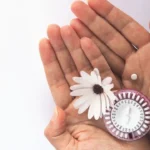
The uterine lining, also known as the endometrium, is the inner layer of the uterus. It thickens and thins over the course of the menstrual cycle in preparation for pregnancy. A thin uterine lining can make it difficult for an embryo to implant and successfully establish a pregnancy.
There are several reasons why someone may want to thicken their uterine lining naturally:
- To increase chances of conception and successful implantation during fertility treatments like IVF
- To improve chances of implantation after multiple miscarriages due to a thin lining
- To regulate abnormal menstrual cycles and increase menstrual flow
- To boost fertility overall when trying to conceive
The good news is there are many natural ways to thicken uterine lining in 48 hours without medical intervention. These can include diet changes, vitamins, herbs, acupuncture, self-massage, regular exercise, quitting smoking, reducing stress, and seeing a doctor to address any underlying causes. The methods introduced in this article can be used alongside medical fertility treatments or on their own to thicken the endometrium and support a healthy pregnancy.
Related: How To Strengthen Uterus For VBAC?
How To Thicken Uterine Lining in 48 Hours
It’s important to note that while these below-mentioned approaches may be beneficial for uterine health, the timeline for significant thickening of the uterine lining, especially within 48 hours, may vary among individuals. Always consult a healthcare specialist before making significant changes to your routine, especially if you are undergoing fertility treatments.
Diet
What you eat can have a big impact on the health and thickness of your uterine lining. Focus on incorporating foods that are rich in vitamins, minerals, and nutrients that support a thick, healthy endometrial lining.
Beets
Beets are a great food to include in your diet when trying to thicken your uterine lining. They contain high amounts of folate and iron, both of which improve blood flow to the uterus. Improved circulation delivers more oxygen and nutrients to the endometrium, helping it grow thicker. Try roasting beets and adding them to salads or blending into smoothies.
Pomegranate
Pomegranate contains powerful antioxidants that protect the uterine lining from free radical damage. Its anti-inflammatory effects also help minimize inflammation that could interfere with implantation. Enjoy pomegranate seeds as a snack, in fruit salads, mixed into yogurt, or blended into a juice.
Leafy Greens
Leafy greens like spinach, kale, and chard are loaded with essential vitamins and minerals for a healthy uterine lining. Folate, vitamin K, calcium, and magnesium in greens support proper endometrial thickness. Add greens to omelets, salads, and smoothies for an easy nutrition boost.
Avocado
Avocados provide healthy monounsaturated fats that help build the endometrial lining. They also contain vitamin E, an antioxidant that protects the uterus from oxidative stress. The potassium in avocados regulates blood flow, improving circulation to the uterus. Add avocado slices to sandwiches, tacos, and salads.
Nuts
Nuts like almonds, walnuts, and cashews contain omega-3 fatty acids that reduce inflammation and promote blood flow to the uterus. They also provide vitamin E, magnesium, and zinc for endometrial health. Enjoy nuts as a snack or sprinkle them onto entrees and salads.
Vitamins
A good vitamin regimen can help prepare the uterine lining for implantation. Here are some of the key vitamins to focus on:
Vitamin E
Vitamin E is an antioxidant that can improve uterine lining thickness and blood flow. Good sources include nuts, seeds, vegetable oils, and green leafy vegetables. Take 400-600 IU daily when trying to conceive.
Vitamin C
Vitamin C improves hormone levels and increases fertility. Get your vitamin C from citrus fruits, peppers, broccoli, tomatoes, and strawberries. You can take 500-1000 mg daily.
B Complex Vitamins
The B vitamins support hormone balance and promote a healthy uterine lining. Make sure to get B6, B12, and folate from your diet or supplements. Folate is particularly important – take 400 mcg of folic acid or folate daily.
Iron
Iron levels affect ovulation and uterine lining thickness. Lean meats, spinach, lentils, and fortified cereals are good sources of iron. Take 30 mg of iron daily alongside vitamin C for better absorption.
Be sure to check with your doctor before taking any new vitamins. Getting your levels checked can help determine the right dosage for your body. Aim for a combination of vitamins from both foods and supplements to support fertility.
Herbs That Thicken The Uterine Lining
Herbs have been used for centuries to support overall health and wellbeing. Certain herbs may help thicken the uterine lining by providing key nutrients and compounds that support proper hormonal balance.
Red Raspberry Leaf – Raspberry leaf is rich in iron, magnesium, potassium, and B vitamins. It helps tone the uterus and may increase blood flow to the pelvic region. Many herbalists recommend drinking red raspberry leaf tea regularly leading up to conception.
Nettle Leaf – Stinging nettle leaf is mineral-rich and contains generous amounts of chlorophyll. It’s known for its nourishing properties and may help thicken the uterine lining over time. Nettle infusions can be consumed daily.
Red Clover – Red clover is high in phytoestrogens that may help balance female hormones. It provides essential nutrients like calcium, magnesium, niacin, phosphorus, potassium and vitamin C. Red clover is commonly used to support reproductive health.
Chasteberry – Also known as vitex or chaste tree berry, this herb has traditionally been used to support hormonal balance in women. It may help regulate menstrual cycles and improve uterine health. Chasteberry is often combined with other herbs.
Be sure to consult your healthcare provider before taking any herbal supplements, especially if you have any medical conditions. While herbs can be beneficial, they may also interact with medications. Finding the right herbal regimen takes time, consistency, and patience. Over time, certain herbs may help promote a healthy uterine lining.
Acupuncture to Increase Blood Flow to the Uterus
Acupuncture has been used for centuries as a natural healing technique that helps balance hormone levels and increase blood flow throughout the body. More recently, acupuncture has also been shown to improve uterine blood flow and thickness to help facilitate implantation.
During an acupuncture treatment, very thin needles are inserted into specific points on the body. These points correspond to certain organs and tissue, including the uterus and reproductive organs. The needles stimulate these points to release endorphins and promote circulation.
Several studies have found acupuncture effective at improving uterine lining thickness and blood flow in women undergoing IVF treatment. It’s believed acupuncture increases blood supply to the uterus by:
- Reducing uterine artery impedance and resistance. This allows more blood to flow easily to the uterus.
- Increasing uterine and ovarian blood flow. This provides more oxygen and nutrients to aid development of the uterine lining.
- Regulating hormone levels like estrogen that support growth of the endometrium.
- Reducing inflammation that may otherwise restrict blood supply.
For women trying to conceive naturally, incorporating regular acupuncture treatments may help create a lush, healthy uterine lining ready for implantation. Acupuncture can promote circulation and thickness without the side effects of medications.
Always see a licensed acupuncturist who specializes in fertility. They can tailor a treatment plan to your cycle and needs. Acupuncture combined with other lifestyle measures may give your uterine lining the vital blood flow it needs each month.
Self-Massage
Massaging the lower abdomen and hips can help increase blood flow to the uterus and pelvic region. This helps provide a lush, healthy environment for an embryo to implant.
Try the following self-massage techniques:
- Use a natural oil like sweet almond or grapeseed to massage your lower abdomen and sides. Apply light to medium pressure with your fingertips. Make circular clockwise motions around the abdomen and over the hips.
- Place both hands just below your belly button. Gently pull the abdominal skin up and away from you. Hold for a few seconds then release and smooth the skin back down. Repeat this stretching massage 5-10 times.
- With your fingers or thumbs, start at one hip bone and massage across your lower abdomen just above the pubic bone. Use light to medium pressure as you massage from side to side.
- Sit up with your knees bent. Place your fists on either side of your lower spine above your tailbone. Gently pound up and down the lower back 5-10 times to stimulate blood flow.
- Use a tennis ball, massage roller, or other tool to apply pressure along the inside of your hips and thighs. Roll it slowly back and forth to improve circulation.
Be sure to breathe deeply and relax your body throughout the self-massage. Aim to massage yourself for 10-15 minutes 1-2 times per day, especially during the weeks leading up to ovulation. The increased blood flow can help prepare the uterine lining for implantation.
Exercise
Getting light exercise can help boost circulation and improve uterine lining thickness. Avoid strenuous workouts that raise your heart rate too high or cause overheating. Gentle activities like walking, swimming, or yoga are great options.
- Go for a 30-60 minute walk every day. Walking gets your whole body moving, increases blood flow, and helps reduce stress. Aim for a brisk but comfortable pace.
- Try restorative yoga poses like child’s pose, legs up the wall pose, and reclining bound angle pose. These positions help increase circulation to the uterus. Hold each pose for 2-5 minutes.
- Swim a few laps or walk around in the shallow end of the pool. The water resistance provides a gentle workout. Being in water can also help relax your pelvic muscles.
- Dance around your living room to fun music for 10-15 minutes a day. Dance moves like hip circles and pelvic tilts can help increase blood flow.
The key is keeping your body active with low-intensity movement. This will improve circulation and help thicken your uterine lining over time. Avoid high intensity workouts that could have the opposite effect.
Avoid Smoking
Smoking severely restricts blood flow to the uterus. The carcinogens in cigarette smoke damage the uterine lining, making it difficult for an embryo to implant.
When you smoke, the nicotine causes your blood vessels to constrict. This reduces the amount of oxygen delivered to your reproductive organs. Cigarette smoke also contains over 4,000 chemicals, many of which are toxic to eggs and embryos.
Studies show that smokers are 30% less likely to conceive per menstrual cycle compared to non-smokers. Even second-hand smoke exposure can reduce your fertility. Female smokers also have a 60% higher miscarriage rate.
If you currently smoke, quitting at least 3 months before trying to conceive can reverse some of the damage. Your uterine lining will become thicker and more vascular. Quitting also improves egg quality and the hormonal environment needed to sustain a pregnancy.
Discuss smoking cessation plans with your doctor. Get support from loved ones, counseling, nicotine replacements, and other resources. Avoid environments that trigger cravings. Make lifestyle changes to reduce stress. Stay motivated by focusing on your dream of having a baby.
Reduce Stress
Stress can significantly impact your hormone levels and uterine lining thickness. When you experience chronic stress, your body produces high levels of the hormone cortisol. Cortisol impairs the hormonal systems that regulate ovulation and menstruation.
Cortisol also interferes with estrogen and progesterone balance. Estrogen and progesterone work together to build up the uterine lining each month. Too much cortisol prevents your body from producing enough progesterone to counter the estrogen. This leads to estrogen dominance, which can result in a thin uterine lining.
Try to minimize stress levels through yoga, meditation, getting enough sleep, saying no to extra obligations, and other self-care practices. Make time each day to relax and decompress. Consider talking to a therapist if you are dealing with severe or unmanageable stress.
Reducing stress is essential for balancing your hormones and promoting a thick, healthy uterine lining. Take steps to decrease stress in your daily life in order to boost your chances of successful embryo implantation.
Related: What is Unicornuate Uterus Pregnancy?
See a Doctor
If diet, lifestyle changes, herbs, and alternative therapies still aren’t helping to thicken your uterine lining, it’s important to see a doctor who specializes in fertility. A fertility specialist can run tests to determine if there are any underlying issues causing a thin lining, and may prescribe medications that can help.
Some medications that may be prescribed include:
- Estrogen – Usually prescribed in pill, patch, or vaginal insert form. Estrogen helps build up the uterine lining.
- Tamoxifen or Clomid – These ovulation-inducing drugs can also help increase estrogen levels to improve lining thickness.
- Pentoxifylline – This drug improves blood flow to the uterus, which provides more nutrients and oxygen to aid lining growth.
- Low-dose aspirin – Helps improve uterine blood flow when taken daily.
- Steroids – May help for women whose lining is thin due to inflammation or an autoimmune condition.
- Viagra or nitroglycerin – Improves blood flow and lining thickness when vaginally inserted.
- HCG – This hormone helps stimulate lining growth.
- Other hormones like progesterone or DHEA may also be considered.
Conclusion
So, to thicken uterine lining in 48 hours, it’s important not to take any medication or undergo procedures without your doctor’s supervision. Your fertility specialist can determine if medication may help, which drugs are suitable for your situation, proper dosing, and monitor your progress through regular ultrasounds. This gives you the best chance of building a thick, healthy uterine lining and improving your chances of implantation.












